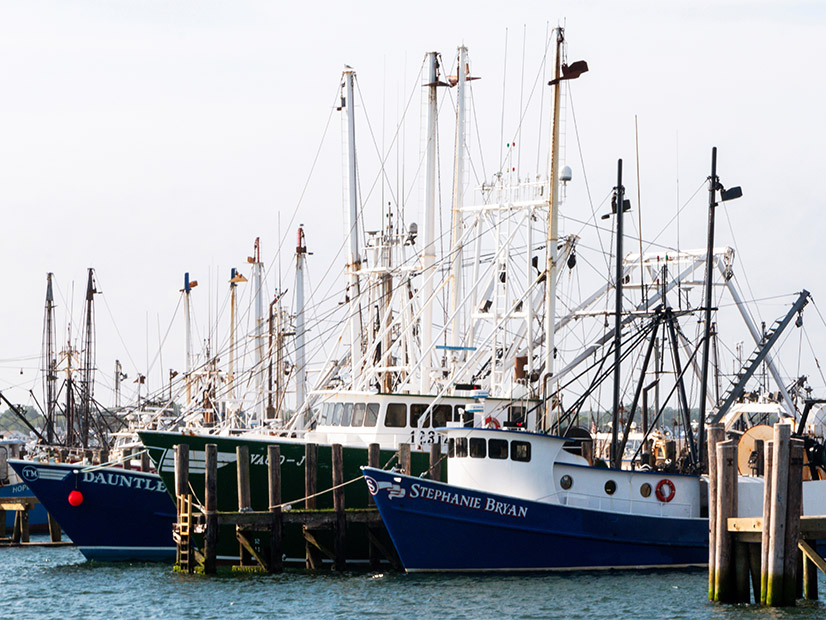The panel of fishers advising Rhode Island’s coastal regulator has abruptly quit, accusing the agency of bias toward the offshore wind development they fear will harm the seafood industry.
All nine members of the Rhode Island Fisherman’s Advisory Board signed a letter of resignation to the Rhode Island Coastal Resources Management Council (CRMC) on Aug. 31.
They said they no longer would participate in the state’s Ocean Special Area Management Plan because its review of utility-scale wind power proposals had become “political theater,” a mockery of what the Ocean SAMP was designed to accomplish.
“It has become abundantly clear that the Rhode Island CRMC has made deference to offshore wind developers its top priority regardless of the requirements of the Ocean SAMP, the cost to the environment or the impacts to Rhode Island’s fishing industry,” they wrote.
The fishers said the CRMC ridiculed their expertise as anecdotal while placating developers and downplaying the impact of their projects.
The fishers cited potential damage to cod spawning grounds and population-level impacts to Atlantic cod because of these projects, as well as significant long-term impacts on the state’s fishing industry, in violation of the Ocean SAMPs enforceable policy.
“We will not allow our names to be connected in any way to Council approvals now amounting to wholesale ocean destruction,” they wrote. “Rhode Island is supposed to be the Ocean State, not the Windmill State.”
The letter is one of many attacks by the fishing industry on the offshore wind industry as it develops along the Northeast coast.
The industry is worried about the effect of wind power construction and operation on marine ecosystems and the effect on fishing fleets. There has been limited reassurance offered in return.
The U.S. Bureau of Ocean Energy Management has noted in environmental impact statements that there likely are to be project-specific effects on local commercial and sport fishing industries. BOEM also expects a cumulative impact from all the projects being planned in relatively compact zones on the Outer Continental Shelf from Cape Cod to Cape May.
Other reports have flagged the lack of scientific knowledge about the exact effects large wind farms will have on the ocean — because these are the first to be built in this part of the world, and because the turbines installed here likely are to be larger than those in use elsewhere.
Finally, National Marine Fisheries Service scientists have warned the ability to assess wind farms’ impact on fisheries will be compromised because research work in the vicinity must be curtailed for safety reasons.
State and federal policymakers are rushing to encourage offshore wind development as a climate-protective measure, simultaneously attempting to build a supply chain, infrastructure and body of scientific knowledge.
Rhode Island and its fishing industry are at the heart of all this — nine federal wind energy lease areas are designated in a trapezoidal area of the Atlantic south of the state. Construction is underway on two wind farms there and a third has been greenlighted.
Rhode Island leaders hope to make the state an onshore hub for offshore wind construction and maintenance and hope to import hundreds of megawatts from the ocean for in-state use.
The state already is home to Block Island Wind. With a nameplate capacity of only 30 MW, it is not considered utility-scale, but it holds the distinction of being the nation’s first offshore wind farm.


